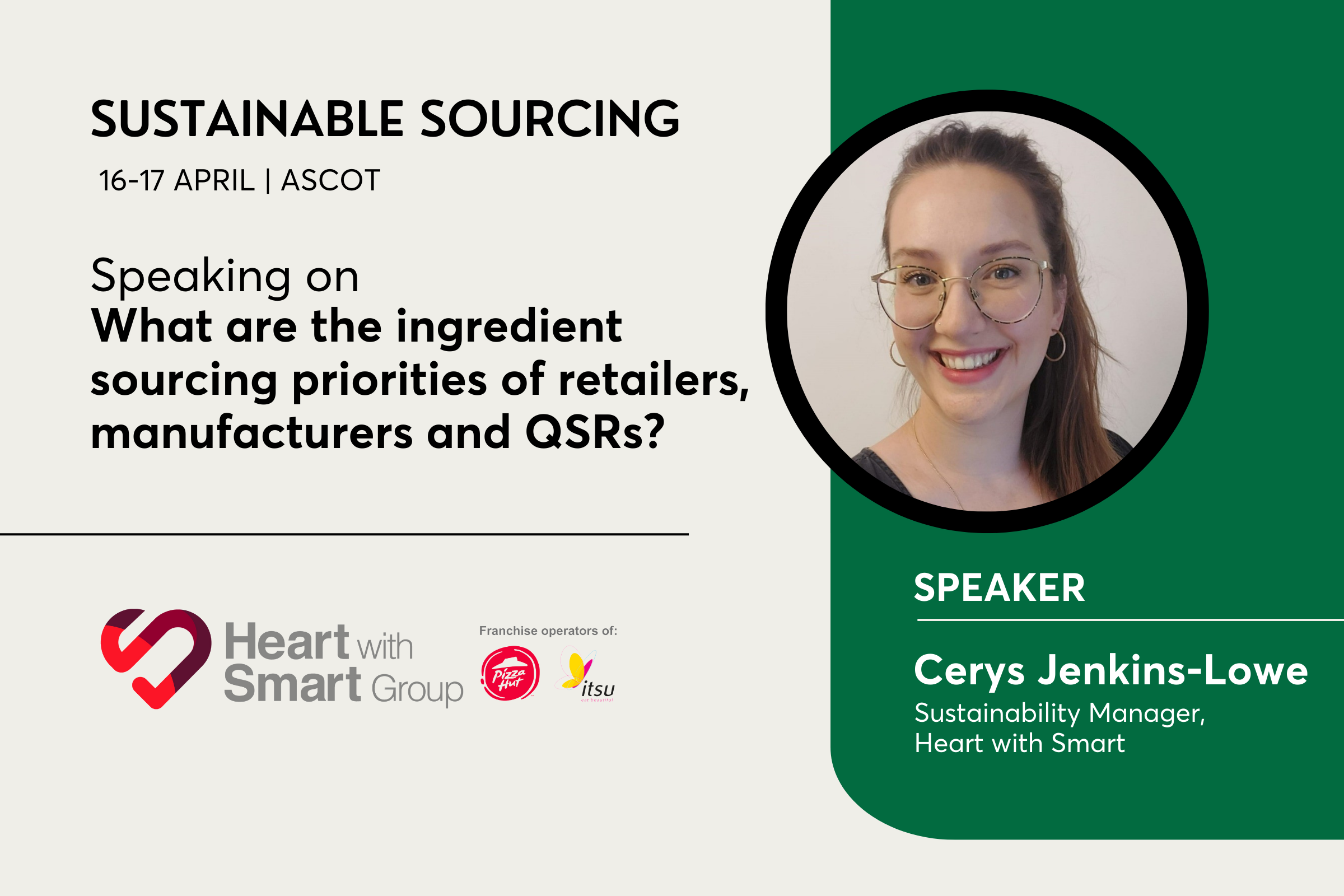How your career could transform the climate crisis

Over the next eight years, the government plans to create one and half million more ‘green jobs’ as part of its plan for an economy using zero fossil fuels. The climate crisis will be transformative to the roles available for new talent entering the industry as companies must step up to meet goals that reduce their impact on the planet. But what could those jobs look like?
In our Green Jobs series, host Stefan Gates speaks to pioneers within the sector about their career highs and lows. Find some of the best advice from the episodes below.
Marc Zornes, CEO and Founder, Winnow Solutions
Winnow Solutions is a company that aims to reduce the amount of food waste produced in commercial kitchens. Through an intelligent system that photographs and weighs food waste, it uses the data collected to help chefs understand where they are wasting food.
Marc speaks to host Stefan Gates about why a strong sustainability agenda now makes “economic sense” for a company. He highlights the importance of government intervention to make companies, like Winnow Solutions, investable.
According to Marc, the food system is “at the nexus of climate change” with boundless opportunities of how to make the food system more sustainable.
“If I was starting a career, I’d be asking myself, what are the organisations that are really going to be driving the agenda tomorrow, because there are organisations that are out there. They’re pioneering new ways of distributing food, pioneering new ways of what type of food we can eat. And many of these changes, if we were to fast forward 20 years we’ll say, well of course, it has to be that way.”
The conversation also touched upon finding a career in sustainability that doesn’t necessarily sit within the sustainability function of a business. Marc says, “if you really want to be someone that is transforming an industry or transforming a business, find a role where you’re really critical and adding value, and bring that sustainability lens to it as a way to think about how you can innovate in that function.”
Hear more from Marc in the full episode and learn about his career highs and lows, and how he thinks we can create a clearly definable and sustainable future.
Pete Statham, Sustainability Manager, Carlsberg Marston’s Brewing Company & Carlsberg Group
Pete studied sustainable development at university which helped him fully grasp the urgency of the climate crisis on the planet. He highlights that businesses have huge potential to make an impact from their ability to invest their expertise in areas to innovate. They can also use their brands to inspire consumers and inspire wider change across society.
Pete has experienced first-hand the dramatic change in the perception of his role over the last few years and highlights how much the industry will continue to change. His role has moved from being the person that makes everyone’s life harder, to the person people need an answer from yesterday. Consumer demand is now tied into a company’s sustainability ethos. With customer demand comes an increased need for people and roles that help a brand meet those demands.
Networking and understanding where your colleague’s decision making is coming is also important when working in sustainability. For example, someone in sales will always be concerned with generating and increasing sales. Working together to find realistic goals and actions can create a favourable environment for progressive change.
Listen to the episode in full to understand how Pete balances the priorities of the business within his role, and why learning the business is so important.
David Reay, Professor of Carbon Management and Education at the University of Edinburgh
David Reay, a Professor of Carbon Management and Education at the University of Edinburgh, and member of the UK Government’s Green Jobs Taskforce spoke to Stefan from COP26 in Glasgow, where the future of green jobs was central to the discussions.
“Most jobs are going to be greened. So a lot of the jobs that we’ll have in 2030, even a lot of the jobs by 2050, they’ll be like the jobs we do now, but the skills that you have will be seen much more through a green lens, through a netzero lens. So if you are in finance at the moment, you’re probably thinking, if you’re not already, I need to know about what risks and opportunities climate action represents to us and what regulation is going to come down the line. How can I make money for my investors and shareholders? You can’t avoid your job having to include some green skills and knowledge about the climate context, because it’s in every sector, it’s going to define this century.”
David gives examples of how every role will need to be conscious of the crisis, and how it will be encapsulated into so many touch points of modern careers. Incorporating a green lens into any future role will help someone stay ahead and progress.
There is also a wider need to incorporate sustainability into more curriculums in academia outside of degrees directly related to the subject. The UK risks getting left behind the rest of the world if people don’t try and get ahead of the curve. It is imperative for it to be embedded to set up young talent for a career where the topic will also be embedded.
“If we think about people who are leaving school after this year, we need to make sure they know what pathway they can take. And that if we’re going to need tens of thousands of heat pump engineers or tens of thousands of renewable energy workers, that doesn’t happen overnight. If you’re the government that needs to be put in place. There are some bits that are going reasonably fast, because the industry is taking a lead, but it really needs to open up across the economy.”
David also highlights the importance of students making their future needs known to universities. If a course isn’t offering the knowledge needed to set students up in a green future, ask them for it and let the institutions understand it is a key criteria to making a course attractive.
Dorothy Shaver, Global Marketing Sustainability Lead, Unilever
“The way we’re going to really change the food system is to change what people love to eat. And in order to do so, we need to make food that’s good for people and the planet. The most affordable, the most beautiful and the most delicious.”
Dorothy Shaver is Global Marketing Sustainability Lead at Unilever – but how did a self-confessed “hippie at heart” end up working for one of the world’s biggest companies? And how does she go about getting it to think and act in a more sustainable way?
Dorothy raises the importance of not looking at the food industry in silo. It’s important to understand the full journey from seed to plate, and to understand the impact along the way and what changes can be made.
“I hope that in the future, the name sustainability isn’t in anybody’s title, because it’s in everybody’s title.”
There is also a financial impact to a green future. It takes a lot of investment to change the system, especially when it comes to regenerative agriculture. Dorothy notes that it currently doesn’t have a competitive edge for the mass consumer like we might see in other areas. In order for progressive change, it requires a commitment to the long-haul. Working in a green role can be like pushing water uphill, but the rewards to the planet are second to none.
Dorothy’s role did not come without hesitations. She initially planned to stay in the role for a year as she was not in favour of Unilever’s products. After she became familiar with their initiatives to make sustainable living commonplace, she found inspiration and has been with the brand for over 10 years. Like other speakers, working for large conglomerate companies gives the opportunity to see tangible change within a system looking to do better.
“We don’t think big enough generally, and I think the reason why I’ve been successful, it’s very much about thinking about things, and in my particular world food, about the whole process. You have to be able to think things through, untangle them, and pull out the thread that people care about in every conversation. It’s like playing a little Marionette game in a sense: how do you talk to a mass consumer about making small changes like taking a little bit of beef out and putting lentils in or black beans instead? But then how do you also talk to farm offers to help them understand that their yields will be higher if they use less pesticides, and they do cover cropping. And how do you remember how to pull each lever across the whole complexity of the food system.”





